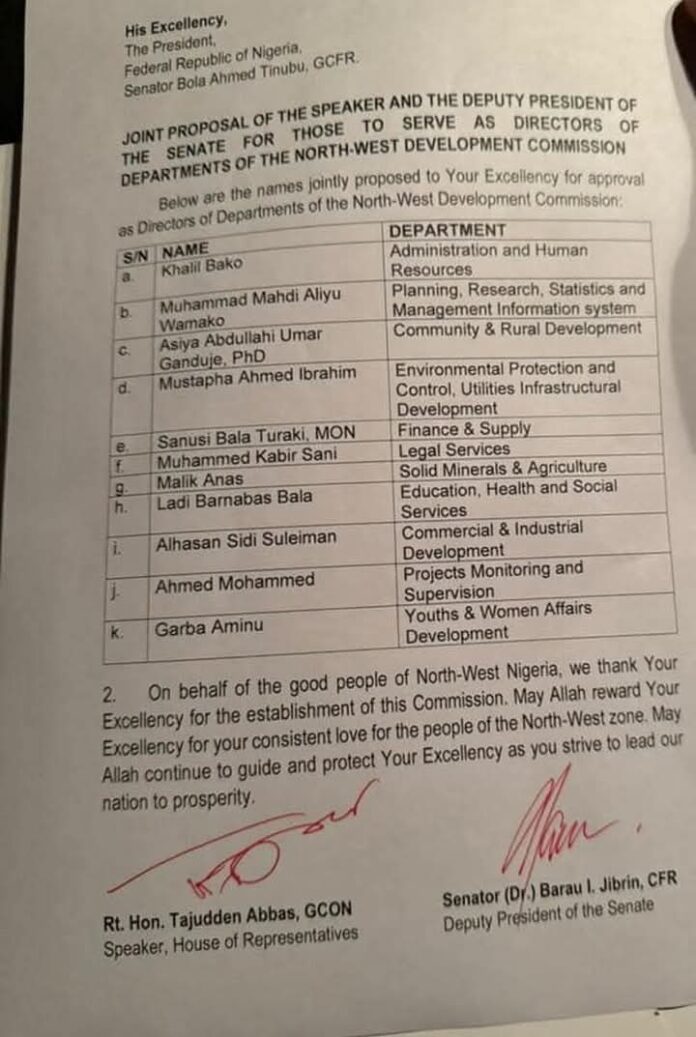By: Daure David
In the recent political landscape of Nigeria, a concerning development has emerged that is raising alarms over the real motivations behind the newly established regional commissions. A joint request, spearheaded by the Senate President and the Speaker of the House of Representatives, to President Bola Ahmed Tinubu has brought to light what many critics are calling a political maneuver aimed at consolidating power within the ruling government rather than promoting economic development or enhancing the welfare of Nigerians.
The proposal, which seeks to appoint individuals loyal to the presidency rather than qualified Nigerians, appears to prioritize political allegiance over competence. Critics argue that these regional commissions, intended to oversee the development of Nigeria’s regions, are nothing more than instruments for strengthening political control at the expense of state governments and their local structures.
The central concern lies in the growing potential for these commissions to usurp power from the state governments, especially during election cycles. The local government areas (LGAs), which have traditionally been under the control of state governors, could become pawns in a larger political game, particularly in states where the ruling party does not have dominance. This strategy, critics warn, could be a deliberate move to weaken the states’ political influence and create a parallel system of governance under the control of the presidency.
There are further fears that the autonomy of the LGAs, which could theoretically be empowered by the regional commissions, may come with significant drawbacks. While governors might be allowed to conduct LGA elections and impose their candidates, the real danger lies in the financial control these elected officials would have. If they fall out of favor with the presidency, they could easily become targets for prosecution by agencies like the EFCC (Economic and Financial Crimes Commission), a scenario many fear would lead to a situation where only those loyal to the presidency would thrive, while others are left vulnerable.
This strategic shift is seen by many as a way to bypass the governors and maintain the presidency’s grip on power. The masses, in turn, are left with limited options, trapped between two competing centers of power—one that promises autonomy and the other that enforces control. In the long run, critics argue, the true victims will be the people of Nigeria, who could see their democratic rights severely diminished under the guise of political expediency.
As these regional commissions take shape, many are left wondering who will stand up to protect the integrity of Nigeria’s democracy. Will the political elite continue to consolidate power in ways that undermine the people’s will, or is there hope for genuine reform that serves the needs of the nation, not just the agenda of the few?
The future of Nigeria’s political system now hangs in the balance, as the true purpose of these commissions becomes ever more uncertain. One thing is clear: the country is at a crossroads, and only time will tell whether these developments will lead to empowerment or further entrenchment of political control at the expense of the people.
Who will save Nigeria from this political entanglement? Only the future can tell.







